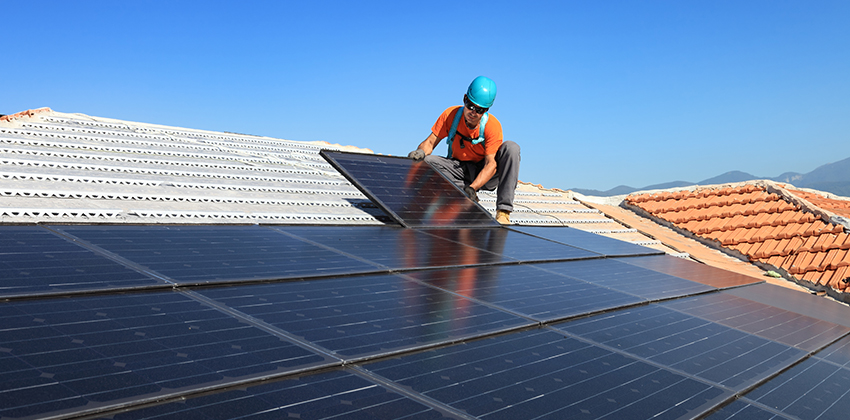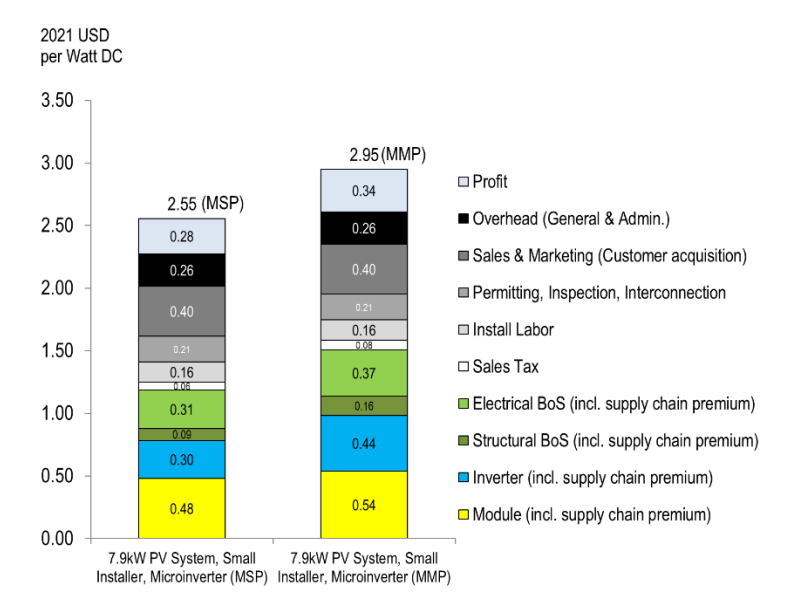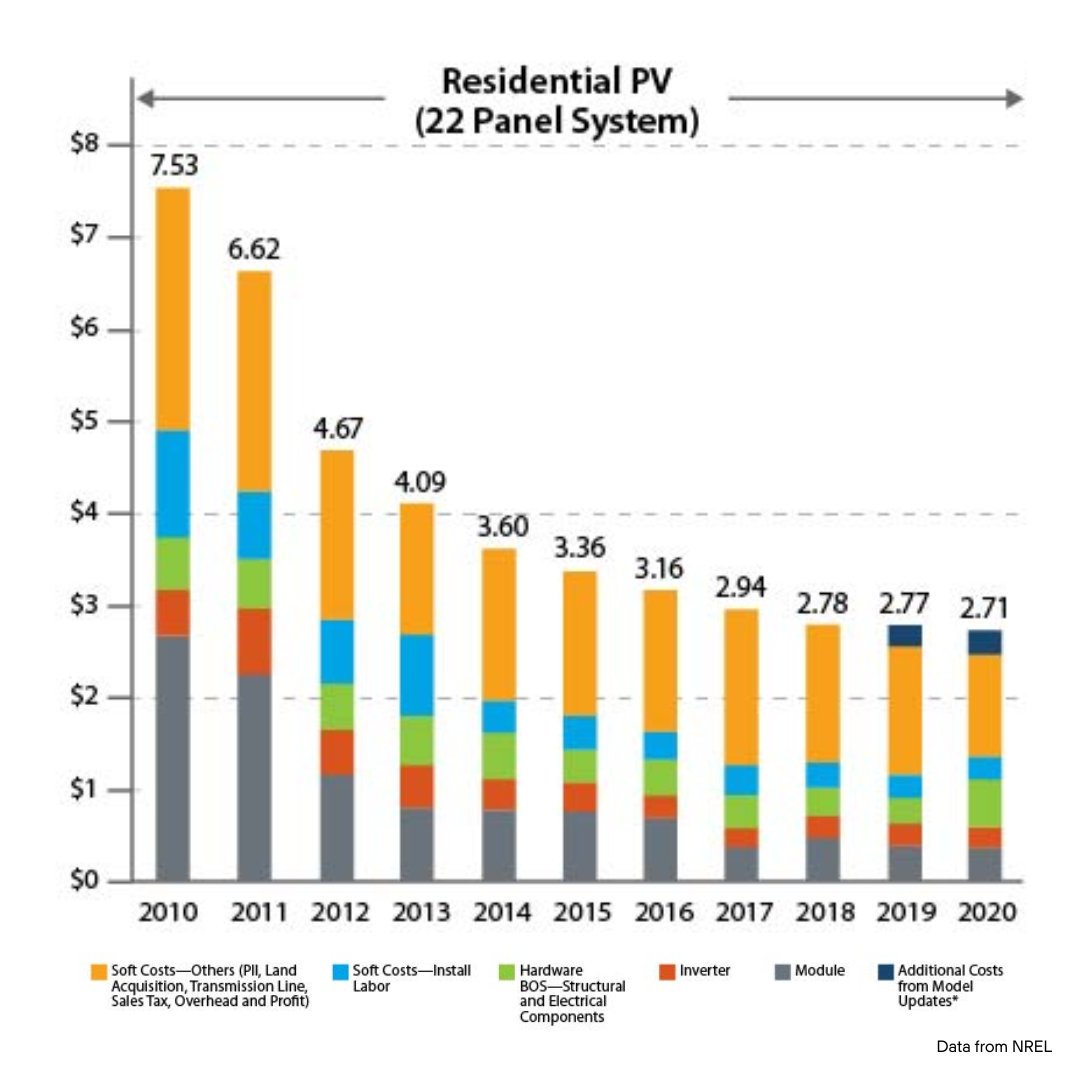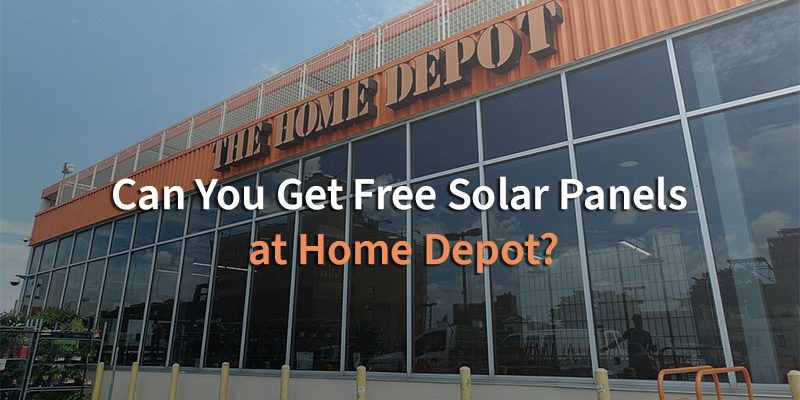
Most solar quotes feature three numbers: The contract price of the system, the value of incentives, and the net cost of the system after incentives.
What solar quotes don’t typically feature is an itemized cost breakdown of the equipment, labor, and other soft costs. So, it’s only natural to wonder how much of your money is spent on installing solar panels versus buying the actual panels.
In this article, we’ll break down how much solar panels cost verus the cost to install them, and give you the tools to estimate how much labor costs for an average solar installation.
Use our solar panel cost calculator to get an estimate for your total project cost.
Solar panel installation cost breakdown
Based on 2022 average labor rates, solar panel installation cost accounts for roughly 5.5% of the total cost of a solar project, according to the National Renewable Energy Lab (NREL).
To put that in perspective, using the a modeled market price (MMP) of $2.95 per Watt for residential solar, labor costs contributed just 16 cents per Watt of solar capacity installed. That’s tied with structural balance of system (racking) for the second smallest piece of the solar cost pie, as shown below. However, it’s important to note — as the NREL does in its report — that these cost benchmarks vary from market to market.

Chart courtesy of NREL. MSP = minimum sustainable price; MMP = modeled market price.
Using the NREL’s modeled market price, a 7.9 kW solar system would cost $23,305 and solar panel installation labor cost would account for just $1,264.
So, while homeowners are used to labor being a notably expensive part of car repairs, landscaping, and other home improvement projects, it’s a relatively small piece of the puzzle for solar projects. And even with wages increasing, the labor cost for installing solar panels has steadily decreased alongside the average cost of solar panels in the 2010’s, as shown below.

Although labor, inverter, and solar panel cost fell substantially in the 2010’s, balance of system hardware and non-labor soft costs have been more stubborn. These non-labor soft costs including permitting, inspection, and interconnection fees, customer acquisition costs, general overhead (facility costs, gas, insurance, etc), and profit.
Short of installing the solar panels yourself (which we don’t recommend for safety and many other reasons), one of the only ways to reduce these non-labor soft costs is to use the solar.com marketplace to compare quotes. Simply put, our free marketplace alleviates customer acquisition burden for the solar companies in our network and allows them to focus on what they do best: Install solar panels.
Solar.com also fosters healthy competition between local installers, motivating them to offer their lowest possible pricing.
How do I estimate solar installation costs?
One simple way to estimate your solar installation cost is to multiply the gross cost of your project by 0.055. According to the NREL data above, installation typically accounts for 5.5% of the total cost of a residential solar project, so this equation will get you a ballpark figure for labor costs.
For example, if you receive a solar quote for $25,000, you can expect labor to make up around $1,375 of the all-in cost. (Check out our solar calculator to estimate the cost of your project.)
It’s important to note that solar panel installation costs are specific to each project and market based on wages, local competition, and specialization of the labor. For example, if you need a main panel box upgrade, the additional labor from a certified electrician will add to the cost of the project. Labor costs also vary from state to state based on the minimum wage, cost of living, and availability of employees.
Because of this variability, it’s unlikely that you’ll find an accurate solar installation cost estimator online. However, it’s worth remembering that installation labor is one least expensive line items in your solar project — and not something to skimp on if you want your solar system to be installed properly and last for 25 years or more.
Will solar panels get cheaper in 2024?
It’s difficult to say where the price of solar panels will go in 2024 because there are opposing market forces at play.
First, the solar industry is still working to untangle supply chain challenges created by the pandemic, which increased the cost of solar panels for the first time in several decades. At the same time, the solar industry is growing at an exponential rate and prices are expected to fall as adoption increases.
Related reading: Will Electricity Prices Go Down in 2024?
Additionally, it’s unclear how local manufacturing incentivized by the Inflation Reduction Act will affect solar panel prices. On one hand, local manufacturing reduces the cost of shipping and tariffs. On the other, US manufacturing workers typically make higher wages than manufacturing workers overseas, which could put upward pressure on solar panel pricing.
It’s important to understand that the solar modules themselves typically make up less than 20% of a solar project. So, while you may pay slightly less for panels by waiting a few years, you’ll likely spend more than what you save on inflated electricity prices while you wait.
Compare multiple quotes for your custom solar project today.



